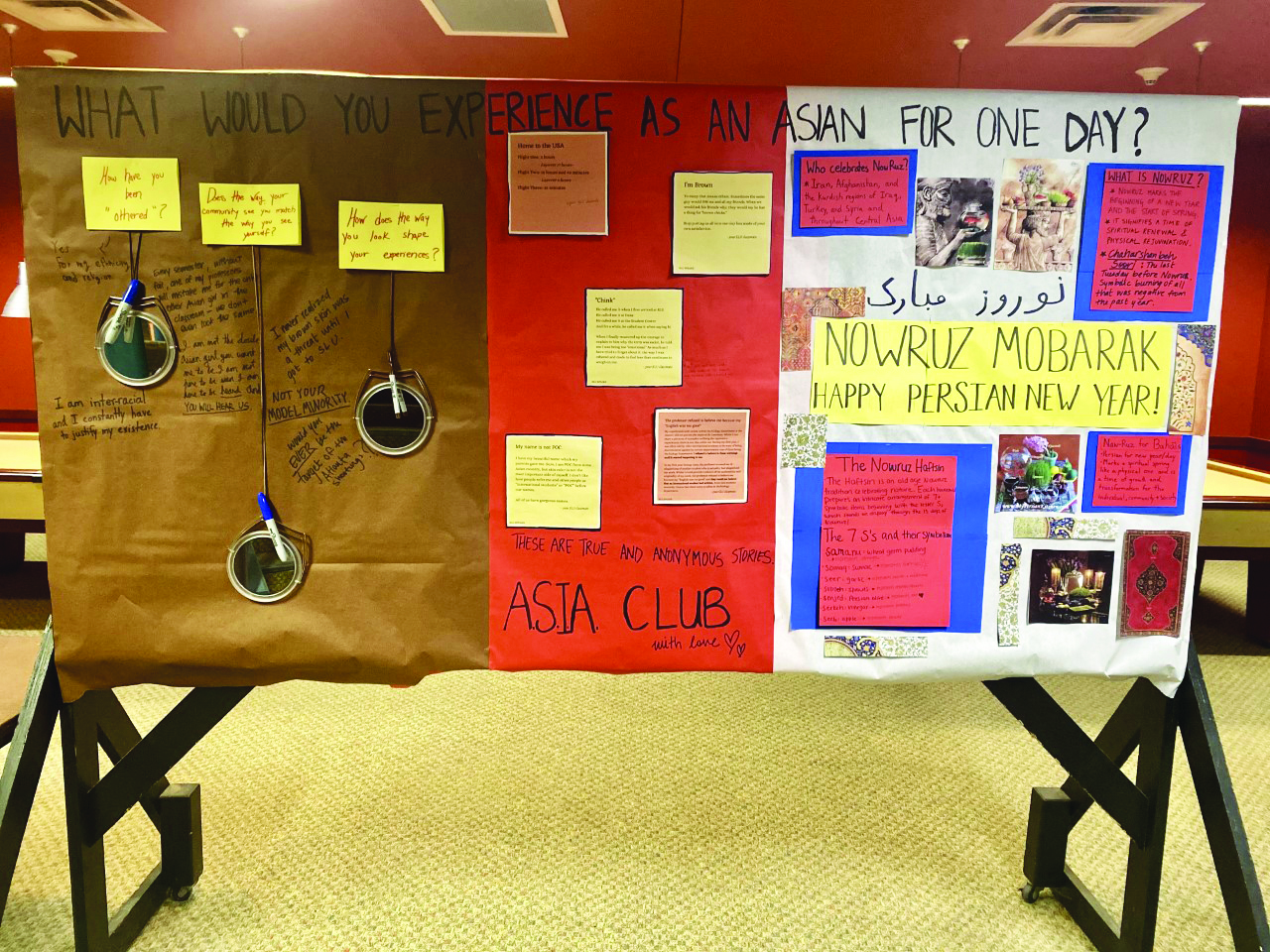Atlanta Spa Shooting and the Rise of Anti Asian Hate Crimes: Enough is Enough.
On March 16 at 5 p.m., shots were fired in Atlanta, GA. Within a few hours, eight lives were lost, seven of them were women and six were of Asian descent. This horrific incident echoed the rising anti-Asian hate crimes prompted by the pandemic. President Fox, in the “Say Our Names” Vigil that honored those whose lives were taken, said that the event in Atlanta with its hatred and violence touches and stings Canton. “We have to change this narrative,” said President Fox. “Hatred and violence will not stop because of our righteous scolding, or shifting blame, or letting someone else do the lifting of every voice. We don’t have ready solutions, but it starts with radical empathy.”
After the news of the shooting last Tuesday, St. Lawrence University, being a small society itself, immediately sought to deliver a message to ensure that its students and faculty of Asian descent are supported. The President’s Office released a statement on Wednesday, March 17 saying that “hate has no place in the St. Lawrence community.” The message encouraged students to turn to the Strategic Action Plan for Diversity and Inclusion to remind themselves of SLU’s goal to support and give voice to underrepresented groups on campus. “We denounce all acts of violence, racism, prejudice and hatred, and we stand in solidarity with all of our community members, especially our Laurentians of Asian descent during this traumatic time,” said President Fox and Associate Dean of Diversity and Inclusion Kimberly Flint-Hamilton. “We recognize the critical need for eliminating bias and bigotry in the North Country and beyond with our example of active empathy at St. Lawrence.”
During the Vigil, tears fell as SLU community members read out loud the names of those who passed away or critically injured from the shooting and shared about their lives: Soon C. Park, Hyun J. Grant, Suncha Kim, Yong A. Yue, Xiaojie Tan, Daoyou Feng, Delaina Ashley Yaun, Paul Andre Michels and Elcias R. Hernandez-Ortiz (in critical condition). “Although it made sense to call the event ‘Say Their Names’ because it is grammatically correct,” International Students Coordinator Tsewang Lama said, “We chose to call it ‘Say Our Names’ to fully acknowledge the collective struggle that the AAPI community is going through.”
The suspect, Mr. Long, is now charged for murder, according to The New York Times. He claimed to be a “sex addict” and that the shooting was his attempt in resolving sexual temptation. Another excuse made was that he “was having a bad day,” according to a brief on the attack by Capt. Jay Baker of the Cherokee County Sheriff’s Office, GA. No hate crime charges have been placed against him.
Avana Mohandesi, A.S.I.A Club’s President and a senior at SLU, suggested that the events at Atlanta were no anomaly. “I found myself switching between periods of being overwhelmed to periods of being numb,” she said. “The violence has been there, right in front of us, and we’ve simply chosen to turn a blind eye. Throughout the pandemic, it has been known that individuals of Asian descent were singled out, blamed and abused. This just seems to be society’s tipping point. I hurt for my community.”
Iman Maani, A.S.I.A’s co-Vice President shared the same feelings: numbness and hopelessness. “When I heard of the shooting, I didn’t really feel anything because I thought ‘Oh it’s been happening all year long’,” she said. “But a few days later, desperation hit me. I began questioning myself and unable to find an answer on how I can uplift this community that is like a family to me.”
While Mohandesi and Maani both struggled on finding light and hope during this time, they did not forget to stress the importance of raising awareness. They saw it as a way to contribute to their wounded community. One attempt at that was the visual campaign addressing the hate crimes against the Asian community and debunking stereotypes and myths by A.S.I.A club in collaboration with faculty and students across the SLU campus. The campaign was a series of photographs where participants held in front of them a message. One read “I am not a virus,” another read “love our people like you love our food.” Each of the photographs was accompanied by an educational caption that tackles problems like “model minority” or COVID-19 myths.
According to Mohandesi, “the visual campaign gained more traction than the Executive Board had anticipated. It not only reached individuals in our campus community, but also those beyond and across the country.” She also said that there are more events in the planning stages. “A.S.I.A has been working on a few things in collaboration with other organizations such as The Dub, BLI, La Sociedad, KDS and many more,” said Mohandesi. “Hopefully we help breed a more inclusive space here and encourage the school to take more action on an institutionalized level.”
According to Stop AAPI Hate, an initiative formed to document the violence and discriminations against the Asian and Asian American community, there have been nearly 3,800 reports on violence in 2020 alone. This 150 percent spike in comparison to 2019 brought much fear and separation amid a time that needs collectivism. Maani believes that the first step to address this disconnection is through self education. “We have frequently placed the responsibility in addressing oppression onto the oppressed,” she said. “So, instead of waiting for the BIPOC community to address anti-Asian hate, educate yourself. There are resources out there waiting to be read and viewed.”



